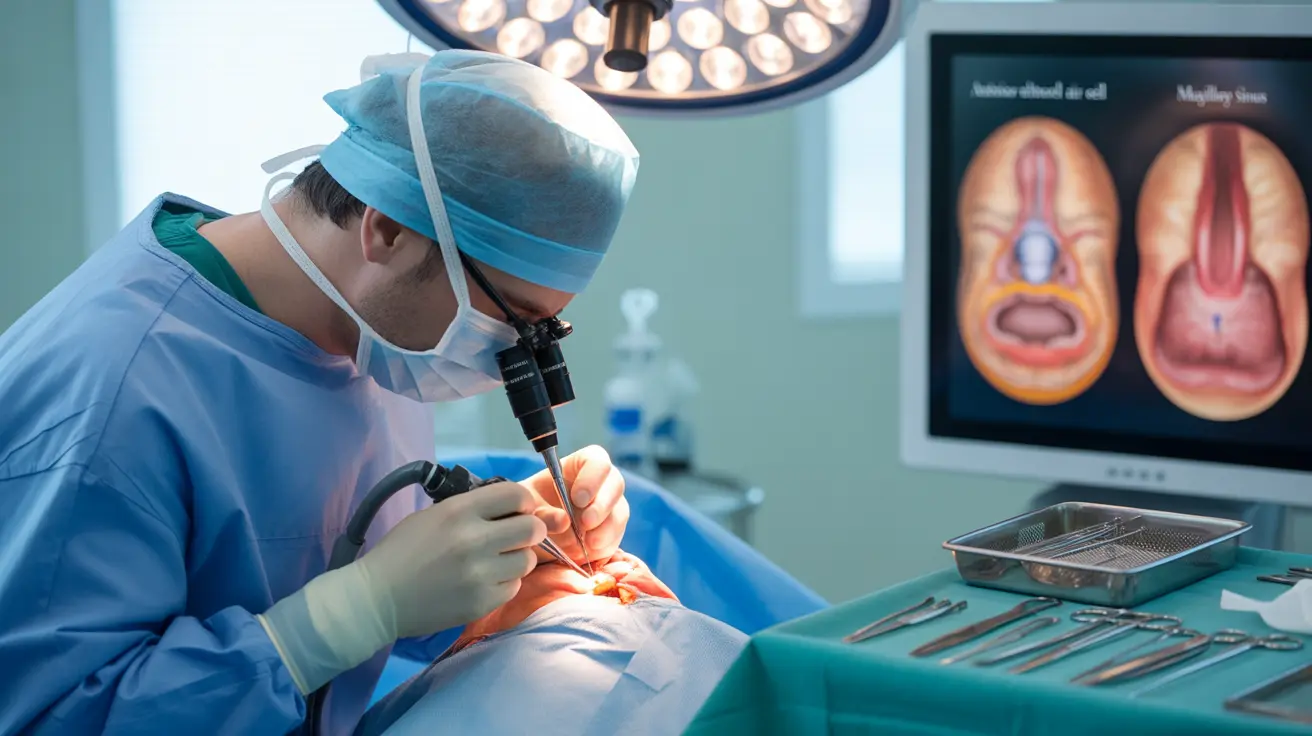Nasal polyp surgery is a significant medical procedure that can provide relief for individuals struggling with persistent nasal polyps. These soft, painless growths in the nasal passages or sinuses can significantly impact breathing and quality of life when conservative treatments fail to provide adequate relief. Understanding the surgical options, recovery process, and long-term management strategies is crucial for patients considering this treatment approach.
If you're contemplating nasal polyp surgery, this comprehensive guide will help you understand what to expect before, during, and after the procedure, as well as important considerations for long-term success.
When Is Nasal Polyp Surgery Necessary?
Surgery becomes a consideration when conservative treatments, such as nasal corticosteroids and oral medications, fail to adequately manage symptoms. Key indicators that surgery might be necessary include:
- Chronic nasal congestion that doesn't respond to medication
- Persistent sinus infections
- Significant breathing difficulties
- Loss of smell or taste
- Chronic facial pain or pressure
- Sleep disruption due to breathing difficulties
Types of Nasal Polyp Surgical Procedures
Endoscopic Sinus Surgery
The most common surgical approach for nasal polyps is endoscopic sinus surgery. This minimally invasive procedure involves inserting a thin, flexible tube with a camera through the nostrils, allowing surgeons to precisely remove polyps without external incisions.
Polypectomy
A simple polypectomy may be sufficient for isolated polyps. This procedure specifically targets visible polyps in the nasal cavity without extensive sinus surgery.
The Surgical Process
Nasal polyp surgery is typically performed under general anesthesia and usually takes between one to three hours, depending on the extent of the polyps. The surgeon will:
- Insert an endoscope to visualize the surgical area
- Remove polyps using specialized instruments
- Clear affected sinuses as needed
- Place temporary packing if necessary
Recovery and Post-Operative Care
Recovery from nasal polyp surgery requires careful attention to post-operative instructions. Most patients can expect:
- Initial recovery period of 1-2 weeks
- Mild to moderate discomfort managed with pain medication
- Nasal congestion and drainage for several days
- Regular saline irrigation to promote healing
- Follow-up appointments to monitor progress
Managing Risks and Complications
While nasal polyp surgery is generally safe, understanding potential risks is important. Possible complications include:
- Bleeding
- Infection
- Changes in sense of smell
- Cerebrospinal fluid leak (rare)
- Orbital complications (extremely rare)
Preventing Polyp Recurrence
Long-term success after surgery often depends on proper maintenance and prevention strategies. Key approaches include:
- Regular use of prescribed nasal corticosteroids
- Proper nasal irrigation techniques
- Management of underlying conditions (like allergies or asthma)
- Regular follow-up with healthcare providers
- Lifestyle modifications to reduce inflammation
Frequently Asked Questions
- What symptoms indicate that nasal polyp surgery might be necessary?
Surgery may be necessary when you experience persistent nasal congestion, recurring sinus infections, loss of smell or taste, and breathing difficulties that don't improve with medication. These symptoms, especially when affecting daily life and sleep, often indicate the need for surgical intervention.
- What are the different types of nasal polyp surgery and how do they differ?
The main types are endoscopic sinus surgery and polypectomy. Endoscopic surgery is more comprehensive, addressing both polyps and underlying sinus issues, while polypectomy focuses solely on removing visible polyps. The choice depends on the extent and location of polyps.
- What should I expect during recovery after nasal polyp surgery?
Recovery typically takes 1-2 weeks, during which you'll experience some congestion and drainage. You'll need to use saline rinses, avoid strenuous activities, and follow specific post-operative care instructions. Most patients can return to normal activities within 2 weeks.
- What are the potential risks and complications associated with nasal polyp surgery?
Common risks include temporary bleeding, infection, and changes in smell sensation. More serious but rare complications can include cerebrospinal fluid leak or orbital complications. Your surgeon will discuss specific risks based on your case.
- How can I prevent nasal polyps from recurring after surgery?
Prevention involves consistent use of prescribed medications, regular nasal irrigation, managing allergies and asthma, avoiding irritants, and maintaining follow-up care. Long-term success often requires a combination of medical management and lifestyle modifications.




